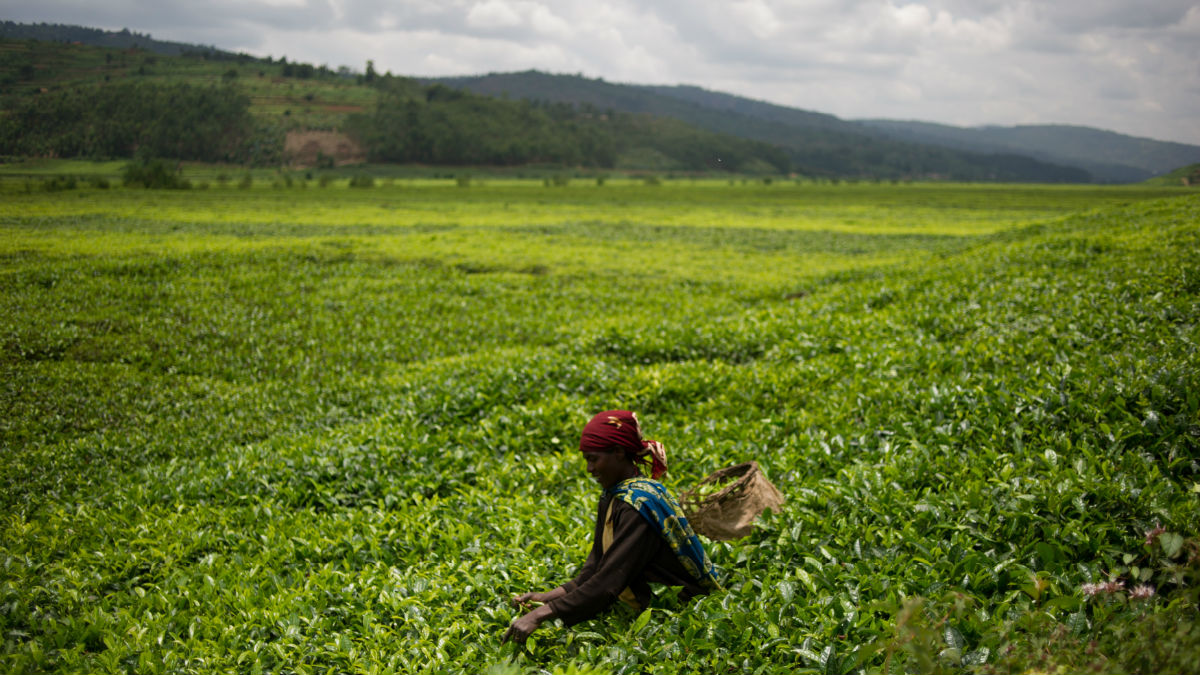Which are the world's best and worst countries for girls?
High teen pregnancy rate sees UK sit at 15 on Save the Children's list

A free daily email with the biggest news stories of the day – and the best features from TheWeek.com
You are now subscribed
Your newsletter sign-up was successful
If you're a girl, then you want to live in Sweden, according to a new Save the Children report on the world's best and worst countries to be if you are a girl.
Every Last Girl measures nations against five indicators: early marriage, adolescent pregnancy, maternal mortality, women in parliament and secondary school completion.
While Sweden comes top, Niger is at the bottom, with the UK at number 15, a ranking affected by its relatively high teen pregnancy rate of 15.3 per 1,000 births. That factor, combined with a low proportion of women MPs, also pulls Australia down the list to 21st position.
The Week
Escape your echo chamber. Get the facts behind the news, plus analysis from multiple perspectives.

Sign up for The Week's Free Newsletters
From our morning news briefing to a weekly Good News Newsletter, get the best of The Week delivered directly to your inbox.
From our morning news briefing to a weekly Good News Newsletter, get the best of The Week delivered directly to your inbox.
The world's largest economy, the US ranks 32nd, below Algeria and Kazakhstan, because of its relatively high teen pregnancy and maternal mortality rates.
Sub-Saharan countries rate worst, making up the bottom 20 entries from a total of 144 countries and showing high rates of deprivation across all five indicators.
The report, released to coincide with this week's International Day of the Girl, also finds that every seven seconds, one girl under the age of 15 gets married across the world.
Save the Children add early marriage has a knock-on effect on teen pregnancy, maternal deaths and the high levels of girls dropping out of school.
A free daily email with the biggest news stories of the day – and the best features from TheWeek.com
Writing in the Huffington Post, former Danish prime minister Helle Thorning-Schmidt, now chief executive of Save the Children International, says: "In the time it takes you to read this article, at least 45 girls under 15 will marry. That’s one girl every seven seconds."
Together with Kevin Watkins, chief executive of Save the Children UK, Thorning-Schmidt says there is a "compelling" case for action to achieve the UN target of ending child marriage by 2030, although progress is "painfully slow".
Best ten
Sweden
Finland
Belgium
Denmark
Slovenia
Portugal
Switzerland
Worst ten
Niger
Chad
Central African Republic
Mali
Somalia
Sierra Leone
Malawi
Guinea
Cote d'Ivoire
-
 Switzerland could vote to cap its population
Switzerland could vote to cap its populationUnder the Radar Swiss People’s Party proposes referendum on radical anti-immigration measure to limit residents to 10 million
-
 Political cartoons for February 15
Political cartoons for February 15Cartoons Sunday's political cartoons include political ventriloquism, Europe in the middle, and more
-
 The broken water companies failing England and Wales
The broken water companies failing England and WalesExplainer With rising bills, deteriorating river health and a lack of investment, regulators face an uphill battle to stabilise the industry
-
 Epstein files topple law CEO, roil UK government
Epstein files topple law CEO, roil UK governmentSpeed Read Peter Mandelson, Britain’s former ambassador to the US, is caught up in the scandal
-
 Iran and US prepare to meet after skirmishes
Iran and US prepare to meet after skirmishesSpeed Read The incident comes amid heightened tensions in the Middle East
-
 Israel retrieves final hostage’s body from Gaza
Israel retrieves final hostage’s body from GazaSpeed Read The 24-year-old police officer was killed during the initial Hamas attack
-
 China’s Xi targets top general in growing purge
China’s Xi targets top general in growing purgeSpeed Read Zhang Youxia is being investigated over ‘grave violations’ of the law
-
 Panama and Canada are negotiating over a crucial copper mine
Panama and Canada are negotiating over a crucial copper mineIn the Spotlight Panama is set to make a final decision on the mine this summer
-
 Why Greenland’s natural resources are nearly impossible to mine
Why Greenland’s natural resources are nearly impossible to mineThe Explainer The country’s natural landscape makes the task extremely difficult
-
 Iran cuts internet as protests escalate
Iran cuts internet as protests escalateSpeed Reada Government buildings across the country have been set on fire
-
 US nabs ‘shadow’ tanker claimed by Russia
US nabs ‘shadow’ tanker claimed by RussiaSpeed Read The ship was one of two vessels seized by the US military